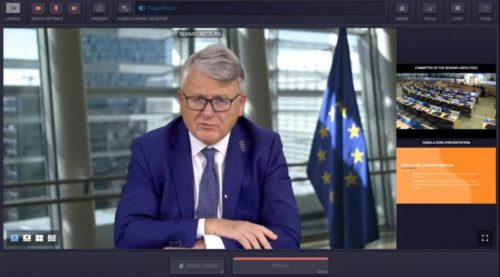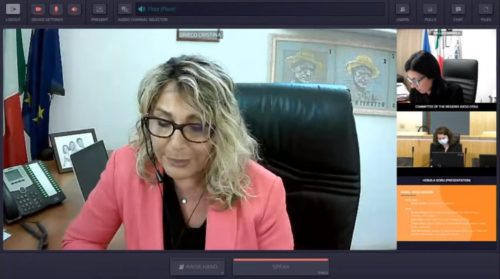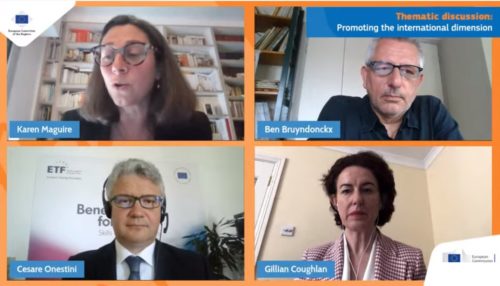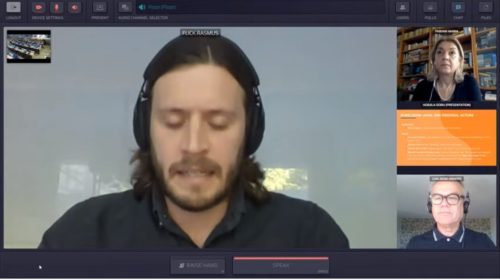High-level conference on the role of Regions and Cities in delivering high quality apprenticeships for all
08/06/2021
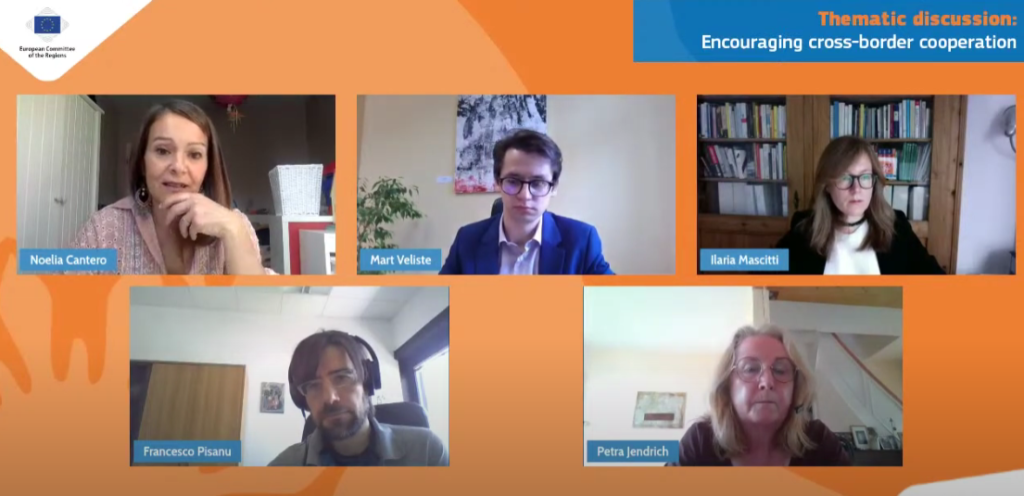
On 3 and 4 June 2021, a two-day high-level conference on the role of Regions and Cities in delivering high quality apprenticeships for all was held online. This event was organised by the European Alliance for Apprenticeships (EAfA, European Commission) and the European Committee of the Regions (CoR) in close cooperation with EARLALL, the Basque Government and the German delegation at the CoR.
The Commissioner for Jobs and Social Rights, Nicolas Schmit, opened the first day of the conference highlighting the importance of Vocational Education and Training (VET) to help young people integrate in the labour market and find quality jobs. His speech was followed by Anne Karjalainen, Chair of the SECEC Commission (Social Policy, Education, Employment, Research and Culture) at the CoR, who underlined that “reskilling and upskilling has become an urgent need in the context of the green and digital transition.”
The first session of the day was introduced by Jorge Arévalo, Basque Regional Vice-Minister for VET. He referred to the quick changes that technological transformation is bringing and how it will alter our relation to the planet. Then, a panel discussion was held on delivering high quality apprenticeships for all in such a context. Panelists discussed on the importance of helping regional and local authorities to increase the attractiveness of apprenticeships in order to build more inclusive labour markets. In this sense, Cristina Grieco, Special Advisor for Relations with Regions at the National Italian Ministry of Education specified that “apprenticeships can also be a good tool for inclusion: because of the pandemic, some workers have left the job market and need to reinter it with improved abilities and skills.”
The panel discussion was followed by two parallel thematic sessions on empowering adults through upskilling and reskilling and promoting the international dimension. They counted on the participation of CoR Members and the European Training Foundation, OECD and Cedefop, as well as regional actors from Bremen and Flanders (the latter was represented by Ben Bruyndonckx, Coordinator International Mobility Projects in VET, Connectief).
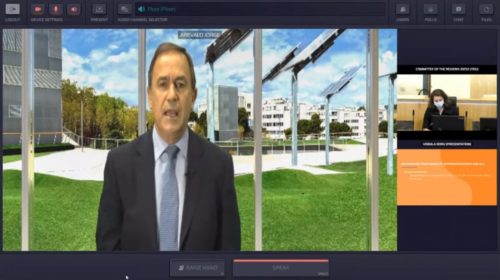
Jorge Arévalo |
|
|
The second day of the conference started with some insights into the Implementation of the European Pillar of Social Rights. Chiara Rondino, from the European Commission’s DG EMPL, reflected on the future of the labour market: “if we look at job forecasts, we can expect one million new jobs by 2030 created in the context of the green transition and two million by 2050 in the European Union.”
Her inspiring speech was followed by two parallel thematic sessions: the first one focused on mobilising local and regional actors with distinguished speakers coming from several European regions. Georgette Bréard, Vice-President in charge of training, learning and guidance in the Brittany Region pointed out that “digitalisaton needs to be introduced in a responsible way, taking into account the its environmental and social impact”. She was followed by Anders Carlberg, Head of the Research, Development and Education Department from Region Västra Götaland, and Rasmus Flick, from the same region’s Chamber of Commerce. They explained how apprenticeships could help industries from the territory to finds skilled workers. Then, Rikardo Lamadrid Intxaurraga, Director General for advanced New Technologies and Advanced Learning at the Ministry of Education of the Basque Government described the Basque VET system with Iñigo Araiztegui Arraiz, Director of Internationalisation at TKNIKA (Basque VET Applied Research Centre), who also presented the EXAM 4.0 (Excellence in Advanced Manufacturing) project.
At the same time, the second parallel thematic session was moderated by Noelia Cantero, EARLALL Director. The session focused on encouraging cross-border cooperation. Petra Jendrich, Head of department of Vocational Schools and Securing the Supply of Skilled Workers at the Rhineland-Palatinate’s Regional Ministry of Education, highlighted that 18 vocational schools had reached the“European school” label in Rhineland Palatinate in 2020. She was followed by Ilaria Mascitti, public officer and project manager of the DUALPLUS project, and Francesco Pisanu, Head of “Evaluation of educational policies Office” and scientific reference of the DUALPLUS project, both coming from the Autonomous Province of Trento. Their project aims at increasing the attractiveness of dual education in the Alpine area.
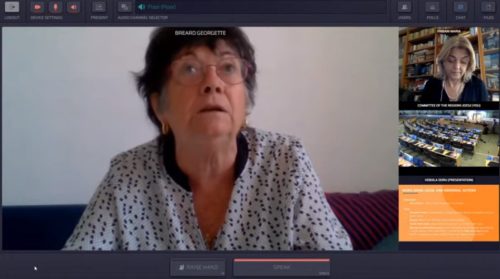
Georgette Bréard |
|
|
The last session of the two-day high-level conference, moderated by Norbert Schöbel, from the European Commission’s DG EMPL was entitled “One year after the Covid-19 outbreak: Good practices that will remain”. The session was composed of speakers coming from Cedefop, the OECD, the City of Rome and the Policy Learning Platform. Closing remarks followed, acknowledging the latest developments of EAfA and the relevance of its upcoming activities, and the event was officially closed by Thomas Wobben, Director for Legislative Works at the European Committee of the Regions, who thanked all event co-organising partners, including EARLALL, for a good cooperation.
Useful links
- Press release by the European Commission
- Event report
- Event website
- Conference recordings:
[ssba-buttons]


